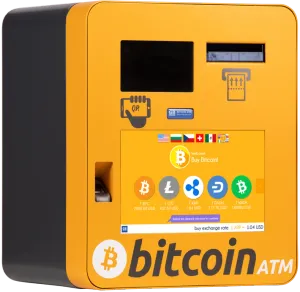Bitrue didn't release details on how the attack had been achieved, but explained that one of their hot wallets had been impacted. They announced that they would be pausing withdrawals for several days as they investigated the incident, and that they would be compensating affected users.
Bitrue crypto exchange hacked for $23 million
- Post by Bitrue
NFT collector Franklin claims to have been scammed for 2,000 ETH ($4.2 million)
Franklin disclosed on Twitter that "Due to an unfortunate IRL issue, I have had to sell off a lot of BAYC apes to pay off BendDAO loans while the liquidity was available". He had recently sold 27 of the Bored Apes. He later wrote, "I got rug pulled on an investment I put almost 2000 ETH into, thinking it was credible due to who else invested (not naming anyone for privacy reasons). Someone used our $$ as a casino gambling Ponzi and flushed it down the drain. Please learn any lessons possible from this." 2,000 ETH is worth around $4.23 million at today's ETH prices.
People immediately began to speculate about what project he could be referring to. Some wondered if perhaps he was trying to cover up losses on the Rollbit crypto casino, which he was known to use, and where he could be observed on-chain depositing more than 6,000 ETH (~$12.7 million) since the beginning of the year alone. Later in the day, he wrote another tweet: "For partial transparency: My personal PnL [profit and loss] of my Rollbit gambles is about -650 ETH total. So yes I lost a lot of money myself on Rollbit, but that didn’t require me to sell off today." At today's prices, 650 ETH is around $1.375 million.
Franklinisbored expressed that he would be taking a break from NFT trading and social media following the incident: "I won't get involved in NFT trading/twitter for a while, and will just focus on my private life for the time being with my remaining apes."
Yearn Finance exploited for more than $11 million
The attacker began swapping tokens out for other stablecoins shortly after the exploit, moving them into lending projects like Aave and laundering them through the Tornado Cash cryptocurrency mixer. There were early concerns that Aave itself was impacted by an exploit, but it was later clarified that Aave had simply been used to swap tokens involved in the Yearn exploit, and did not appear to itself be vulnerable.
This is not the first exploit involving Yearn Finance, which was hacked for $11 million in 2021, and which lost around $1.4 million in connection to the massive Euler Finance attack in March 2023.
Nicole Behnam pumps and dumps: "There were mistakes made in a wallet that I controlled"
Writer, journalist, and now web3 influencer Nicole Behnam helped pump Dogecoin founder Billy Marcus' new free-to-mint "Blocky Doge 3" NFT project, writing on Twitter, "No roadmap or utility? I'm in 👀" and talking it up on large Twitter spaces. A wallet belonging to her then received 250 NFTs from Marcus early on, then dumped around 220 of the NFTs on the market all at once, tanking the secondary market price while earning her around 20 ETH (~$38,000). At the moment, the NFTs are selling for an average of 0.031 ETH apiece (~$59).
After being found out, she wrote on Twitter that "There were mistakes made in a wallet that I controlled," but claimed that she had tried to make it up by returning the profits and buying up low-priced NFTs. "How the last 24 hours went down was not cool and I’m doing my best to rectify the situation," she wrote. "Listening, learning, moving forward." Shortly afterwards, she was removed from a "NFT100" list that had published only days prior by NFT Now, for what they described as violations of their ethics policy.
Ren Protocol transfers all assets to FTX bankruptcy team
Now, the Ren team has announced that they have transferred all assets on the Ren Protocol "to the FTX Debtors' cold storage wallets for safeguarding".
The announcement mentioned "possible shutdowns of infrastructure and systems," possibly referring to Ren's plans — announced shortly after the FTX collapse — to "move on from Alameda" by launching "Ren 2.0" and sunsetting the 1.0 version. However, there has been little public evidence that Ren 2.0 has been progressing.
Goblintown NFT images all changed to an illustrated middle finger in protest about royalties
Although NFTs are often thought to be immutable, permanent links to their associated artwork, that's often not the case in practice. Many NFTs store metadata off-chain, or otherwise enable after-the-fact changes.
Goblintown is a collection of NFTs that launched in May 2022, quickly going viral and sparking a phenomenon of Twitter spaces where members spent hours making goblin noises into their microphones. Originally free to mint, the NFTs began selling for thousands of dollars on the secondary market. Now they trade for around 0.38 ETH (~$800) apiece.
In an apparent protest against the willingness of traders and marketplaces to stop honoring royalties, Truth Labs (the group behind Goblintown) changed the artwork for Goblintown and all of their NFT collections to an illustration of a dancing middle finger, with smaller middle fingers emerging from where its arms and genitals would be. The new image reads, "Fuck royalties. Fuck supporting building and creatives. Flipping is the heart of what makes Web3 special. Honor the flipper, fuck the community. Long live the slow rug." At the bottom, the image states: "Goblintown, Illuminati, The187, and Grumpls will be migrating to new contracts before Monday the 17th of April. All holders will be airdropped identical replacement NFTs." The new NFTs will enforce royalties on-chain, preventing marketplaces from allowing users to circumvent them.
Some embraced the new NFTs, while others accused Truth Labs of "rugging". Some people were horrified by the fact that NFTs that they owned could be changed after the fact without their consent, a fact they were not previously aware of. One owner wrote, "So your telling me I spent $1,000s of dollars and have 10 goblintowns for them all to now be dudes shaking their weiners?"
Niantic shutters its web3 project after less than six months
The announcement seemed to come as a relief to many in the Ingress community, with commenters remarking on the "scammy" nature of NFTs. Some wrote that they liked the idea, but that the web3 factor felt like it was "shoehorned" in. "I'll miss the Trading Post, please never bring NFTs or in fact any blockchain into future projects, or if you do at the very very least make it actually matter to the thing it's being put into, but still preferably just don't," said one.
- Trading Post shutdown announcement on Ingress discussion forums
GDAC exchange hacked for assets notionally worth more than $14 million
GDAC halted deposits and withdrawals shortly after the attack, and stated that they had reported the exploit to South Korean law enforcement to investigate.
Terraport Finance hacked for $2 million less than two weeks after launch
Terraport Finance launched on March 31, apparently having gone live without any sort of audit. On April 10, Terraport disclosed that an attacker had apparently managed to drain all project liquidity pools, making off with assets priced at around $2 million.
Trader loses 14,377 $APE (~$61,000) when they sell their Bored Ape
0xSifu loses more than $2.7 million to SushiSwap hack
Today, Sifu himself was the victim of a theft as a bug in the SushiSwap decentralized exchange allowed a hacker to make off with around 1,800 ETH (more than $3.3 million) belonging to him. According to SushiSwap leader Jared Grey, around 300 ETH (~$557,000) of Sifu's funds were subsequently recovered.
Analysts have found that almost 200 addresses on the Ethereum network have approved the vulnerable contract, and around 2,000 addresses approved the vulnerable contract on Arbitrum, Polygon, and other chains. It's not yet clear how much was stolen in total. SushiSwap leader Grey urged users via Twitter to revoke approval for the vulnerable smart contract.
Bitcoin mining firm sues business partner after they allegedly lose $500,000 in Bitcoin to fraudster
The lawsuit also alleges that Gryphon has " dutifully collected its exorbitant Management Fee while shirking its duties under the MSA and delivering abhorrent management services" and "skimm[ed] off the top (i.e., st[ole]) from Sphere's assets".
dYdX exchange announces it will shut down Canadian operations
Canada has become more strict on cryptocurrency exchanges in recent months, particularly following the collapse of FTX.
Someone steals the Bored Ape belonging to former NFL star Dez Bryant
The Bored Ape would likely fetch somewhere around $125,000 if resold. The other three NFTs would likely resell for somewhere around $8,700. Together with around $3,400 in stolen tokens, Bryant's total loss is around $139,000.
After some observers spotted the suspicious-looking transactions, Bryant confirmed on Twitter: "Yes my ape was stolen and I don't know how this is crazy".
- dez.eth on Etherscan
- Tweet by Dez Bryant
Gemholic raises 921 ETH (~$1.7 million) in a token sale only to realize funds are stuck
.transfer() — a common function used with Ethereum projects that is not supported by zkSync.The zkSync project evidently came to the rescue of Gemholic, announcing that they would change the protocol in a new release to add support for Solidity functions such as .transfer(), which will ultimately free Gemoholic's locked funds.
Binance closes its derivatives arm in Australia
Binance will continue to operate its spot exchange product in Australia, but customers will no longer be able to trade derivatives on the platform after April 21.
Someone accidentally spends 100 ETH (~$190,000) on a free NFT
A trader apparently trying to bid $100 for one of the NFTs seems to have mistakenly entered 100 ETH, or around $190,000. The trade was of course quickly accepted by a seller who made a tidy 1666x the typical floor price.
Some have speculated the massive offer was money laundering, but the fact that the bid was an open offer that could be accepted by anyone seems to make that theory less likely.
- "NFT trader accidentally bids 100 eth on a freely minted NFT", r/CryptoCurrency
- Transaction on Etherscan
Sentiment protocol hacked for almost $1 million
The attacker apparently took advantage of a re-entrancy vulnerability to execute the theft, then swapped the tokens and bridged them to the Ethereum main chain.
Sentiment tweeted that they were aware of the attack and investigating what had happened. They also stated that they were working with law enforcement. Later that evening, they sent a message to the hacker, offering to let them keep 10% of the stolen funds as a bounty if they returned the rest. Sentiment was audited by two crypto security firms.
On April 6, Sentiment announced that the exploiter had returned 90% of the funds, keeping $95,000 and receiving a promise from the organization that they would not try to prosecute the theft.
Paxful abruptly shuts down
Youssef was vague as to the reasons for the closure, writing that "While I cannot share the full story now, I can say that we unfortunately have had some key staff departures. Also, regulatory challenges for the industry continue to grow, especially in the peer-to-peer market and most heavily in the U.S."
Youssef later elaborated in a Twitter Space, explaining that he feared for the safety of user funds because of a lawsuit from his co-founder, who he also accused of "[driving] away all of our senior level staff".
Some had trouble withdrawing funds from the platform, though this seemed to be due to the overload. Youssef tweeted, "Paxful database is a bit overloaded now as everyone is withdrawing funds. It is making transfers slow. I promise funds r safe and they will clear soon".
On May 8, Paxful came back online, though it was unclear whether or in what capacity the business would continue to operate going forward.
Rumor tweet by crypto influencer causes BNB and Bitcoin sell-off
Cobie decided he wanted to make a record of his prediction, so he tweeted the SHA-256 hash of the string "Interpol Red Notice for CZ". Typically, this would allow him to later reveal the seed, allowing him to prove after the fact that he had indeed made a correct prediction. Why? I don't know. Bragging rights I guess?
Anyway, according to Cobie, one of Cobie's inner circle leaked the seed, and the contents of Cobie's prediction were widely circulated on Twitter. Some thought the prediction was inside knowledge of events that had already transpired. Someone else began circulating a doctored screenshot of the Interpol website, purporting to show a red notice. People began offloading their BNB tokens (the native token for Binance and Binance's blockchain), causing a sudden 3% dip in the token price. Bitcoin also fell on the news.
Over $25 million taken from an MEV bot by malicious validator
MEV bots are a phenomenon that became popular in recent times: bots that use various techniques to extract value by inspecting pending blockchain transactions and then sending advantageous transactions of their own. In this case, a bot was performing a "sandwich attack": sending transactions just before and just after a pending transaction, which manipulate the price of the underlying asset, allowing the bot operator to "steal" value from the victim — "steal" in quotes, because there is some debate over whether MEV bots are really stealing, or are operating within the rules laid out for them.
In order to manipulate prices in this way, they have to put a substantial amount of money at risk. A "rogue" Ethereum validator appeared to replace some of the transactions that were being executed by the bot, leading to a loss of WBTC, USDT, Dai, and WETH totaling a bit over $25 million.
First Arbitrum DAO vote spirals into disaster: DAO rejects $1 billion spending proposal, but Arbitrum already started spending
The vote, which still has a day left before completion, is currently standing at 75% against and 25% in support. However, it was discovered that Arbitrum had already begun spending those 750 million tokens, including via the movement of a substantial amount of tokens, and "conversion of some funds into stablecoins for operational purposes".
Another Arbitrum team member subsequently published a post in which they claimed that the proposal was not really a vote but rather a "ratification" of decisions that had already been made by the Arbitrum team, leading many to question what the DAO was even for in the first place. Others questioned the fact that Arbitrum was receiving so much money to use however they liked, not subject to DAO approval.
Things got even messier when the Arbitrum Twitter account "clarified" that "40M $ARB tokens have been allocated as a loan to a sophisticated actor in the financial markets space", and the rest had been sold off for "operational costs". The loan of $52 million worth of ARB to an unnamed actor and the conversion of another $13 million to stablecoins led some to accuse the Arbitrum team of "selling off", cashing in far more than would likely be required for foundation costs in a brief period of time.
Dynasty Loop NFT games studio allegedly owes millions to employees
In April, four employees filed a lawsuit against the company, claiming around CAD$519,000 in unpaid wages.
Allbridge cross-chain bridge exploited for around $574,000
Allbridge announced that they were investigating the theft, and were working with law enforcement. Meanwhile, the project suspended operations and announced that they were preparing a user compensation plan.
Bittrex crypto exchange to close US operations
In October 2022, Bittrex was fined a combined $29 million by the US Office of Foreign Assets Control (OFAC) and the Financial Crimes Enforcement Network (FinCEN). The OFAC fine pertained to Bittrex's service of users based in Crimea, Cuba, Iran, Sudan, and Syria, who altogether performed $263 million in transactions using the platform. FinCEN's fine was imposed as a result of alleged "willful violations" of requirements around anti-money laundering and suspicious activity reports.
Bittrex will continue operations outside of the US, and currently operate in Europe, South America, and elsewhere.
Arbitrum airdrop plagued by downtime, bugs, and scams
However, the airdrop had a bumpy start, with scammers latching on to the event to proliferate fake airdrop websites. Phishers reportedly scammed more than 10,000 people using these schemes. At one point, Twitter even suspended the real Arbitrum Twitter account after mistaking it for one of the many phishing accounts. Attackers also compromised a Discord account belonging to an Arbitrum developer, using it to post a phishing link to the official Arbitrum Discord server.
Then, when the time for the airdrop came, the token claiming website crashed on the traffic, as did the Arbitrum block explorer. Those who were able to claim their tokens paid exorbitant gas fees, and some wallets attempting to estimate required gas fees malfunctioned, showing estimates in the billions of dollars.
Finally, the airdrop was widely gamed by people commandeering hacked vanity addresses to receive the airdrop tokens allocated to them, with at least $500,000 worth of tokens reportedly claimed by one attacker. Other attackers scrambled to compete with one another to claim tokens allocated to compromised wallets whose private keys had been shared publicly on Github and elsewhere, trying to be the first to siphon the funds. Two additional exploiters siphoned a combined total of more than 1 million ARB tokens from other wallets. One sold them for 713 ETH ($1.27 million); the other transferred the ARB tokens to other wallets.
- "Arbitrum Shows Just How Messy (and Tricky) Crypto Airdrops Can Be", CoinDesk
- "Arbitrum Foundation Homepage Crashes as Users Rush to Claim ARB Tokens", Decrypt
- "Arbitrum airdrop: Hacked vanity addresses used to siphon $500K", Cointelegraph
- "Hackers exploit Discord server to launch fake Arbitrum airdrop", Cryptopolitan
- "Over 1M Arbitrum tokens lost to phishing attack", CryptoSlate
US SEC shuts down Beaxy crypto exchange
According to the SEC, the BXY token sale raised more than $8 million. At least $900,000 of that was misappropriated by Hamazaspyan, who used it for personal purposes, including gambling.
Some of the defendants agreed to permanent injunctions, and to pay fines of around $166,000 and disgorgement of around $62,800. The agreement also stipulates that the Beaxy platform shut down. The SEC announced they were continuing to litigate charges against Hamazaspyan for securities fraud and against Hamazaspyan and his company for the unregistered securities offering.
- "SEC Charges Crypto Trading Platform Beaxy and its Executives for Operating an Unregistered Exchange, Broker, and Clearing Agency", U.S. Securities and Exchange Commission
$8.9 million stolen from SafeMoon
US CFTC sues Binance and CEO Changpeng Zhao
The CFTC has alleged that "Binance has taken a calculated, phased approach to increase its United States presence despite publicly stating its purported intent to 'block' or 'restrict' customers located in the United States from accessing its platform... All the while, Binance, Zhao, and Lim, the platform's Chief Compliance Officer ('CCO'), have each known that Binance's solicitation of customers located in the United States subjected Binance to registration and regulatory requirements under U.S. law. But Binance, Zhao, and Lim have all chosen to ignore those requirements and undermined Binance's ineffective compliance program by taking steps to help customers evade Binance's access controls."
The CFTC is only one of several US groups looking into Binance, with the SEC also reportedly scrutinizing the exchange and the Department of Justice considering charges.
Kokomo Finance rug pulls
After raising user funds, the project's creators drained its liquidity pools. They also convinced users to send funds to them with a technique known as "ice phishing". They then deleted their social media accounts and disappeared.
- "Kokomo Finance", CertiK
Latest Sotheby's NFT sale is decidedly tepid
It seems perhaps even Sotheby's prestige is not sufficient to overcome the NFT downturn.
Collector accidentally burns their $123,000 CryptoPunk
However, some confusing instructions resulted in the owner sending the punk to the burn address, effectively destroying the NFT. "I was trying to wrap it and don't know what I was doing... Thought I was following the directions exactly..." they later wrote. They also later shared that they had borrowed money in order to purchase the CryptoPunk.
US prosecutors file criminal charges against Do Kwon
The criminal charges out of the US add to civil charges he's facing from the SEC, as well as an investigation out of South Korea.
Terra/Luna founder Do Kwon arrested
After the collapse, Kwon became a fugitive. South Korea issued a warrant for his arrest in September, and Interpol issued a red notice. However, he's remained on the lam for some time, reportedly hiding in Serbia for a time — a country with no extradition agreement with South Korea.
Now, officials in Montenegro have announced they arrested Do Kwon, who was attempting to travel through the country using falsified documents. Montenegro is a Balkan country bordering Serbia.
Kraken to suspend ACH transfers after Silvergate collapse
SEC sends a Wells notice to Coinbase
According to Coinbase, the Wells notice related to "aspects of the company's exchange, our staking service Coinbase Earn, and Coinbase Wallet". It's not terribly surprising that the SEC might have Coinbase Earn in its crosshairs, as it has recently taken action against similar products, such as Kraken's staking service. In the wake of the action against Kraken, Coinbase seemed to try to pre-empt SEC arguments by sending an email to customers emphasizing things like "You earn rewards from the protocol, not Coinbase". It doesn't look like this has shifted the SEC's thoughts much, though.
This should be an interesting saga to watch, partly because Coinbase has expressed willingness in the past to go head to head with the SEC.
Lindsay Lohan, Jake Paul, and other celebrities charged for illegally touting Justin Sun's tokens
With the exception of Soulja Boy and Mahone, the celebrities paid a total of more than $400,000 in disgorgement, interest, and penalties to settle the charges without admitting or denying them.
Justin Sun charged with offering unregistered securities and market manipulation
Eight celebrities were also charged with violations of anti-touting law.
SpankPay payments service for sex workers shuts down
In a tweet announcing the shutdown, SpankPay reassured customers, "Rest assured your money is safe and we'll get it to you as soon as possible" — always a scary thing to hear from a crypto company.
It seems that only the payments processing side of the business is shutting down, with projects including SpankChain and SpankMatch continuing to operate.
General Bytes crypto ATMs exploited for over $1.6 million
In addition to standalone servers, General Bytes' cloud service was impacted, and the company announced that it would be permanently shuttering it. "It is theoretically (and practically) impossible to secure a system granting access to multiple operators at the same time where some of them are bad actors," wrote the company in their statement explaining the decision, apparently unaware that this is something software companies find themselves doing all the time.
This exploit was the second breach suffered by General Bytes this year, after hackers exploited a vulnerability in August 2022 that allowed them to steal customer funds. It's unknown how much was stolen in that attack. The company also patched multiple hardware and software issues in their ATMs in September 2021, after Kraken Security Labs discovered issues including poor security practices that would allow attackers to "walk up to an ATM and compromise it".
- "General Bytes Bitcoin ATMs hacked using zero-day, $1.5M stolen", BleepingComputer
- "Hackers steal crypto from Bitcoin ATMs by exploiting zero-day bug", BleepingComputer
- "Kraken Security Labs Identifies Vulnerabilities In Commonly Used Bitcoin ATM", Kraken Security Labs
Thousands lose money to iEarn Bot crypto scam
According to the BBC, dozens of high-profile individuals in Romania, including members of the government and academics, lost money to the scam after it was promoted by technology expert Gabriel Garais — who also says he lost money in the scheme.
iEarn Bot claims to be a US-based company, although its website is full of false information. The person named as the company's founder told the BBC he has nothing to do with the scheme, and companies and institutions listed as "strategic partners" say there is no such partnership.
The BBC identified one cryptocurrency wallet that received payments from around 13,000 others totaling nearly $1.3 million.
Thwarted hacker asks security firm to reimburse gas fees
On March 17, blockchain security company BlockSec observed an attacker trying to exploit a vulnerability in the NFT lending project Paraspace. Although they had successfully identified a vulnerability that could have allowed them to steal 2,900 ETH (a bit over $5 million), their attempt to execute the hack failed because they didn't correctly estimate what it would cost them in gas fees.
After observing the attempt, BlockSec executed a whitehat rescue, where they successfully executed the same attack to remove the funds from Paraspace and secure them until they could return them to the project team.
Incredibly, the exploiter sent an on-chain message to BlockSec: "hey man, I am the one who made the contract you just copied, I couldn't make it work for a stupid gas estimation error. since I lost a lot of money trying to make it work, it would be cool to get at least some of them back... best of luck". Altogether, the would-be attacker spent around 0.7 ETH (~$1,200) on gas fees while trying to pull off the hack.
International group of law enforcement agencies shuts down ChipMixer
According to the US DOJ, ChipMixer had been used to process, among other things, proceeds of the massive March 2022 Axie Infinity hack by a North Korean cybercrime group.
US law enforcement seized two domains and a Github account tied to the organization, and German law enforcement seized ChipMixer's back-end servers and $46 million in cryptocurrency.
Phishers take advantage of fears surrounding the USDC de-peg
Holders trying to use the exchange approved transactions which they didn't realize allowed the phishers to drain their ETH. So far, the scammers have stolen around 74 ETH ($130,500).
Over $35 million lost as contagion from Euler hack spreads throughout defi
Around $11.9 million of tokens were sent from the Balancer defi liqiuidity project to Euler during the attack, prompting Balancer to pause the project.
The Angle Protocol decentralized stablecoin project also disclosed that almost half of the total value locked in the project — around $17.6 million in the USDC stablecoin — were sent to Euler during the hack.
Meta pulls the plug on NFTs
Mark Zuckerberg had once talked about eventually using NFTs for Meta's metaverse projects, suggesting that eventually "the clothing that your avatar is wearing in the metaverse, you know, [could] be basically minted as an NFT and you can take it between your different places". It sounds like that plan may no longer be on the table now.
Euler Finance exploited for almost $200 million
Euler announced that they were aware of the exploit, and were "working with security professionals and law enforcement".
On April 3, Euler Finance announced that they had completed successful negotiations, and that "all of the recoverable funds taken from the Euler protocol on March 13th have now been successfully returned by the exploiter". Unfortunately, based on on-chain transfers, this appeared to only be around $31 million.
Regulators shut down crypto-friendly Signature Bank
A joint statement from federal regulators announced that "All depositors of this institution will be made whole... no losses will be borne by the taxpayer. Shareholders and certain unsecured debtholders will not be protected. Senior management has also been removed."
The shutdown of Signature and the collapse of Silvergate leave many companies in the crypto industry without much access to the US banking system.
PeopleDAO loses $120,000 after payment spreadsheet is shared publicly
When team leads reviewed the spreadsheet to sign off on the payments, they didn't see the row, and there was no rollup showing total payments or anything else that would've helped them catch the malicious activity. The transactions were uploaded to a tool allowing asset transfers via CSV, and the required six out of nine multisig members approved the transaction.
PeopleDAO have reported that they're working with various security researchers to track the funds, and have reported the theft to the FBI and FTC.
USDC loses peg to the dollar
That evening, Coinbase announced they would be pausing USDC redemptions for dollars until the following Monday, claiming it was only because in times of high volume, they needed to process transfers via the traditional banking system. Despite their stated reason, this deepened fears about the stability of USDC, which is supported in part by Coinbase.
The price of USDC began to wobble on smaller, less liquid exchanges like Gemini and Kraken before the issue was reflected more widely. However, most exchanges were showing USDC trading at prices between $0.90 and $0.98 later that night — a noticeable departure from USDC's normally fairly steady peg.
A sustained de-peg would wreak havoc on the crypto industry, where USDC is the second largest stablecoin and boasted a $43 billion market cap (at least before substantial outflows surrounding the SVB concern). Other stablecoins even have exposure to USDC, with both FRAX and DAI using USDC for significant portions of their collateral.









































